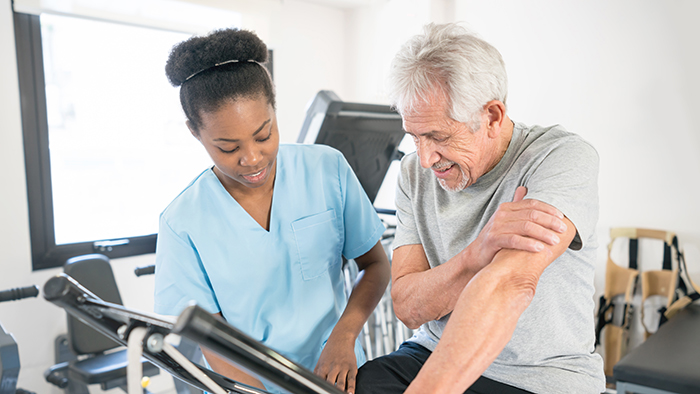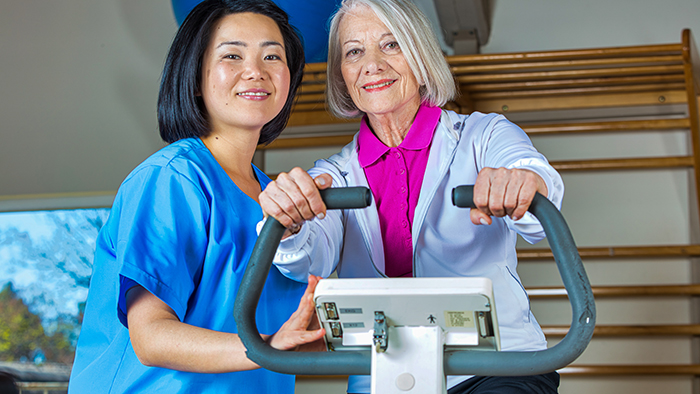For hospital inpatients
- Counseling
- Graded exercise and activity program
- Home walking and activity guidelines
- Progress reports to your physician
Patient education plays a vital role in the rehabilitation process. The patient’s family is urged to participate, so that together he/she can learn how to cope with the disease and modify his/her lifestyle with greater understanding.
For outpatients
- Supervised exercise sessions in Cardiac Rehabilitation gym
- Blood pressure and cardiac monitoring
- Progress reports to your physician

